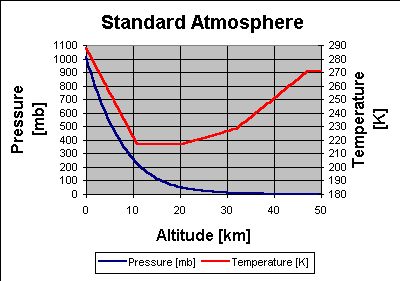Both pressure and temperature decrease with altitude. "Barometric pressure" is actually redundant. A "barometer" is just a device used to measure air pressure, so what you are really refering to is static pressure, or the pressure measured when airspeed is taken out of the question. (Not the best technical definition, but it will work). Static pressure is the result of the weight of the column of air above you. As go up in altitude, there is less air above you weighing down on you. So that means less pressure.
As for temperature, it decreases until you reach an altitude where it is constant. This is called the "tropopause" (which means "temperature stops"). In general it decreases at something called the standard lapse rate, which is equal to about 2 degrees Celsius (3.6 degrees Fahrenheit) per 1000'.

